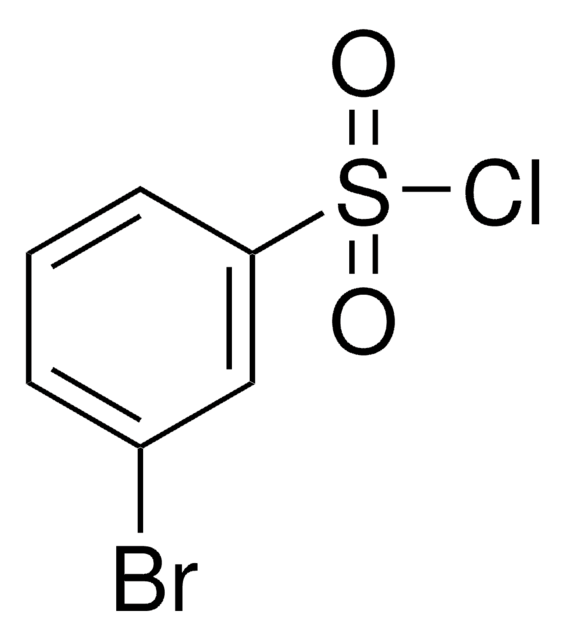531634
Bis(pyridine)iodonium tetrafluoroborate
Synonym(s):
Barluenga reagent
Sign Into View Organizational & Contract Pricing
All Photos(1)
About This Item
Empirical Formula (Hill Notation):
C10H10BF4IN2
CAS Number:
Molecular Weight:
371.91
MDL number:
UNSPSC Code:
12352005
PubChem Substance ID:
NACRES:
NA.22
Recommended Products
Quality Level
reaction suitability
reagent type: oxidant
mp
137-141 °C (lit.)
storage temp.
2-8°C
SMILES string
[I+].F[B-](F)(F)F.c1ccncc1.c2ccncc2
InChI
1S/2C5H5N.BF4.I/c2*1-2-4-6-5-3-1;2-1(3,4)5;/h2*1-5H;;/q;;-1;+1
InChI key
JBVUIHBKNVHCKK-UHFFFAOYSA-N
General description
Bis(pyridine)iodonium Tetrafluoroborate (Barluenga′s reagent) is a mild iodinating and oxidizing reagent capable of selectively reacting with a wide range of unsaturated substrates and tolerates a variety of functional groups.
Application
Bis(pyridine)iodonium Tetrafluoroborate reacts with acetonides derived from simple terpenes to accomplish selective iodofunctionalization with excellent regio- and diastereofacial control. It has been used as a reactant involved in:
- Synthesis of substituted naphthalenes and oxygen containing heterocycles from 2-alkynyl-substituted benzaldehydes.
- Synthesis of tetracyclic tetrahydrofurans
Applications for Bis(pyridine)iodonium Tetrafluoroborate
Signal Word
Warning
Hazard Statements
Precautionary Statements
Hazard Classifications
Eye Irrit. 2 - Skin Irrit. 2 - STOT SE 3
Target Organs
Respiratory system
Storage Class Code
11 - Combustible Solids
WGK
WGK 3
Flash Point(F)
Not applicable
Flash Point(C)
Not applicable
Personal Protective Equipment
dust mask type N95 (US), Eyeshields, Gloves
Choose from one of the most recent versions:
Already Own This Product?
Find documentation for the products that you have recently purchased in the Document Library.
Customers Also Viewed
Total diastereofacial selective iodofunctionalization of terpene derivatives based on Ipy2BF4
Jose Barluenga et al.
The Journal of Organic Chemistry, 68(17), 6583-6586 (2003)
José Barluenga et al.
The Journal of organic chemistry, 68(17), 6583-6586 (2003-08-16)
Acetonides 1, easily obtained from simple terpenes, react with bispyridine iodonium (I) tetrafluoroborate (Ipy(2)BF(4)) and tetrafluoroboric acid in the presence of nucleophiles to give the corresponding adducts 2 with complete regio and diastereofacial control. Acetonides 1 containing a properly located
?-Iodination of enaminones with bis(pyridine)iodonium(I) tetrafluoroborate
Campos, P. J. et al
Tetrahedron Letters, 38(48), 8397-8400 (1997)
José Barluenga et al.
Organic letters, 5(22), 4121-4123 (2003-10-24)
[reaction: see text]. Iodonium ions, o-alkynyl-substituted carbonyl compounds, and alkynes react to give 1-iodonaphthalene derivatives featuring interesting substitution patterns. The reaction with alkenes instead of acetylenes affords related naphthyl ketone derivatives. These two metal-free processes are conducted at room temperature
José Barluenga et al.
Journal of the American Chemical Society, 125(30), 9028-9029 (2004-09-17)
Iodonium ions liberated from bis(pyridine)iodonium(I) tetrafluoroborate react with ortho-alkynyl-substituted carbonyl compounds and different nucleophiles to give valuable iodinated heterocycles at room temperature, through a new and metal-free reaction sequence. Interestingly, the nature of the nucleophile can be widely modified, and
Our team of scientists has experience in all areas of research including Life Science, Material Science, Chemical Synthesis, Chromatography, Analytical and many others.
Contact Technical Service














